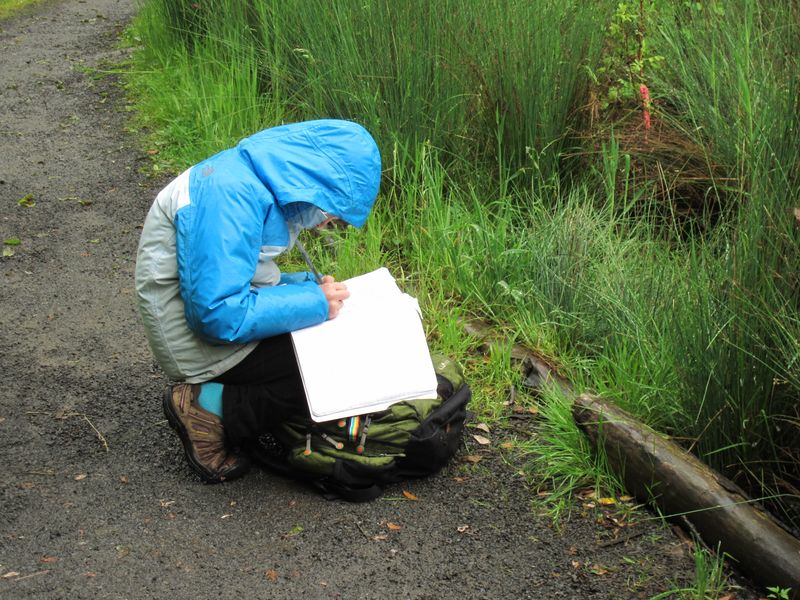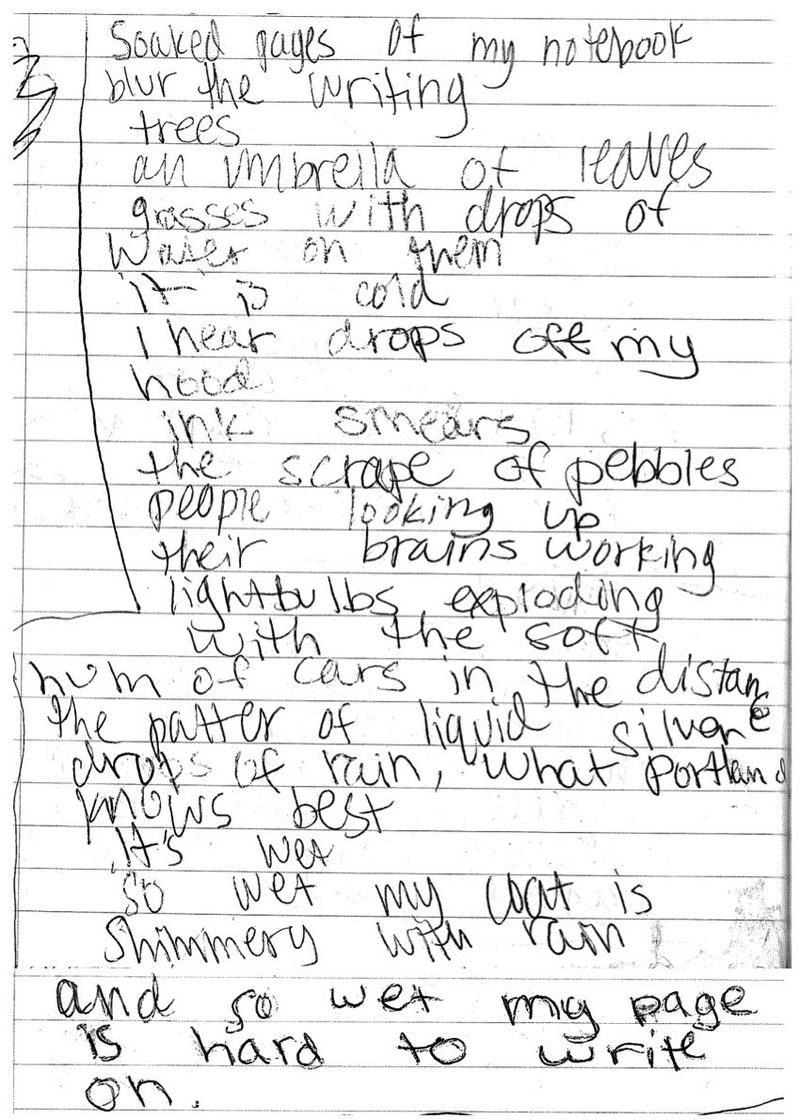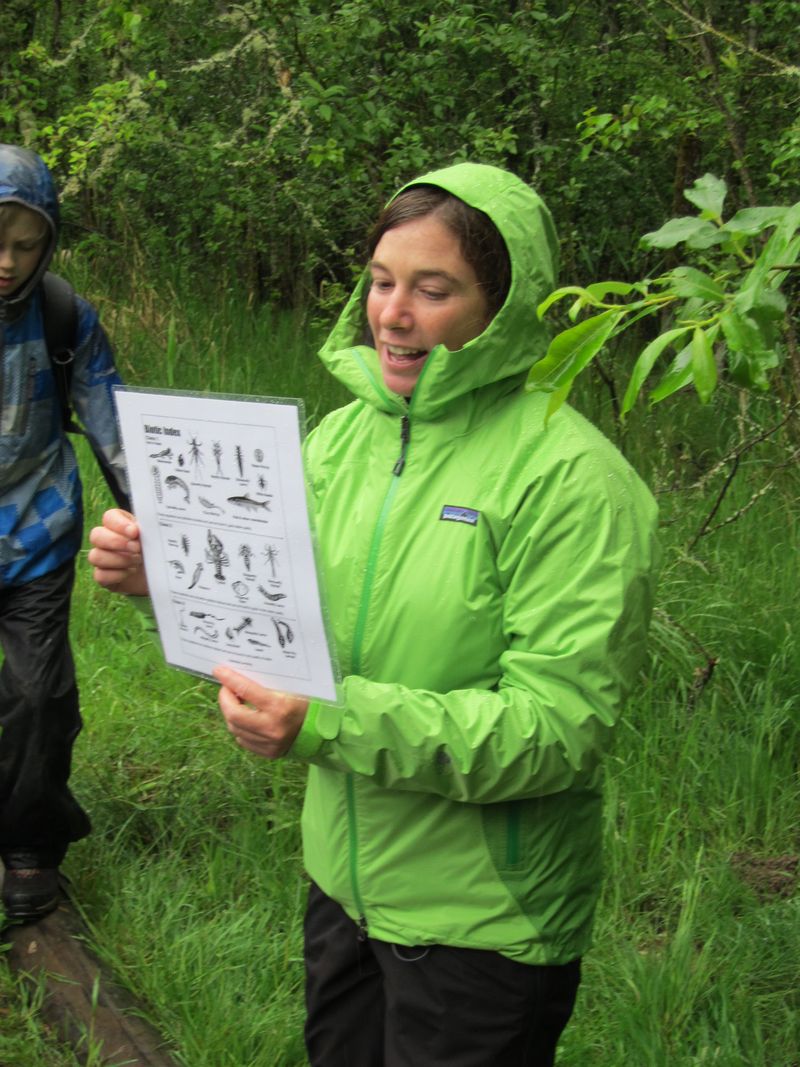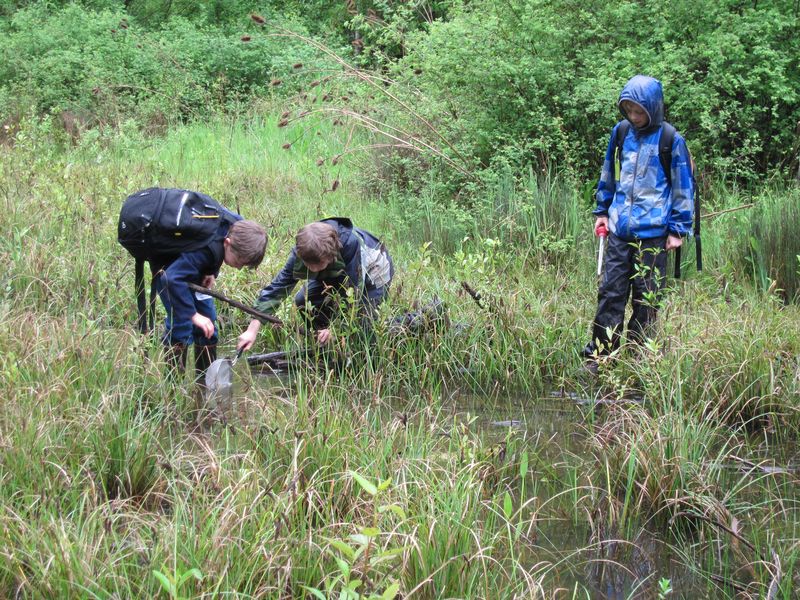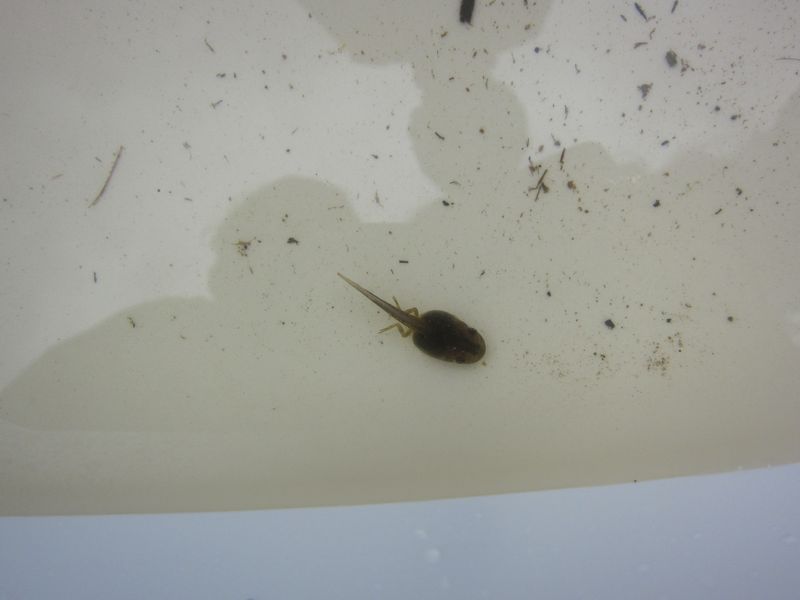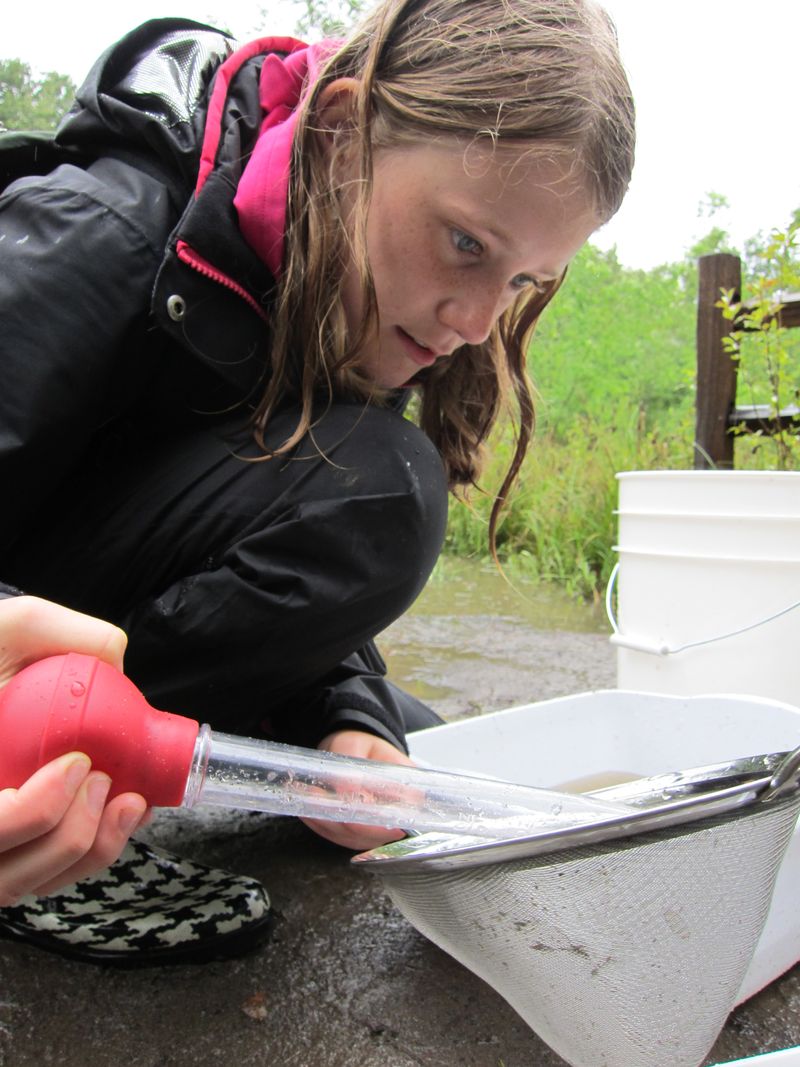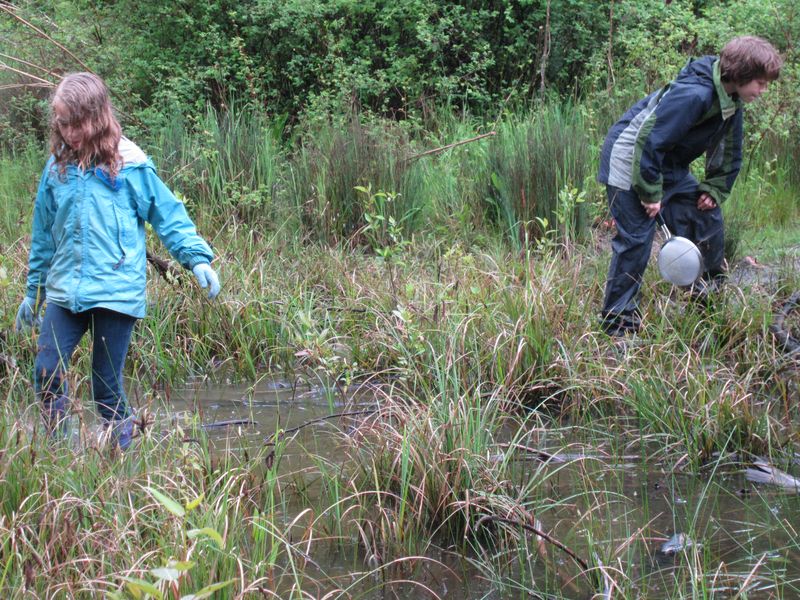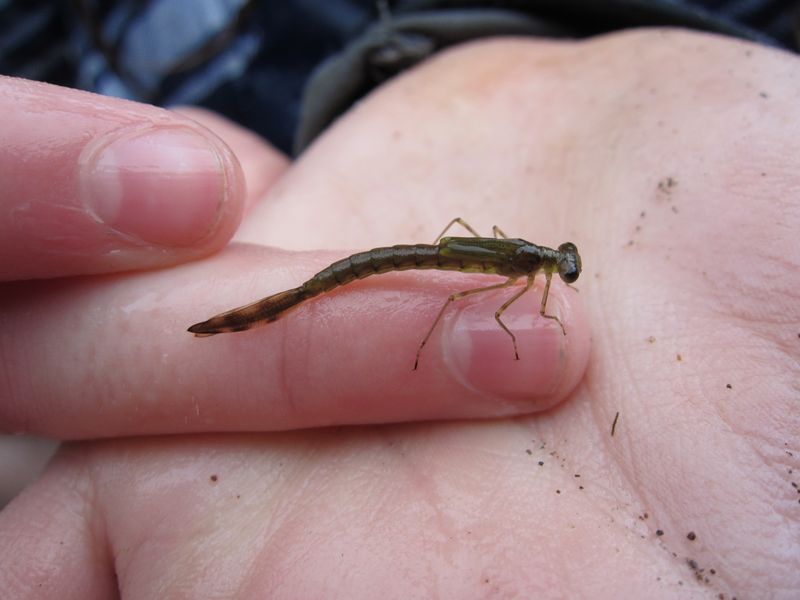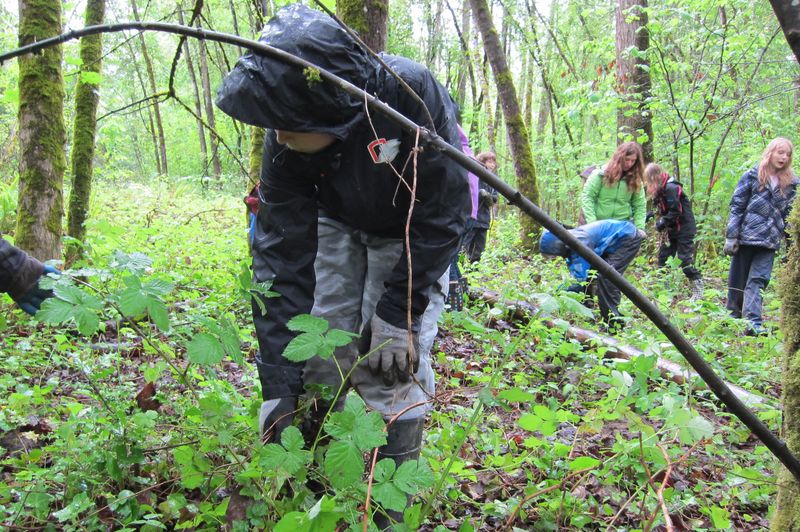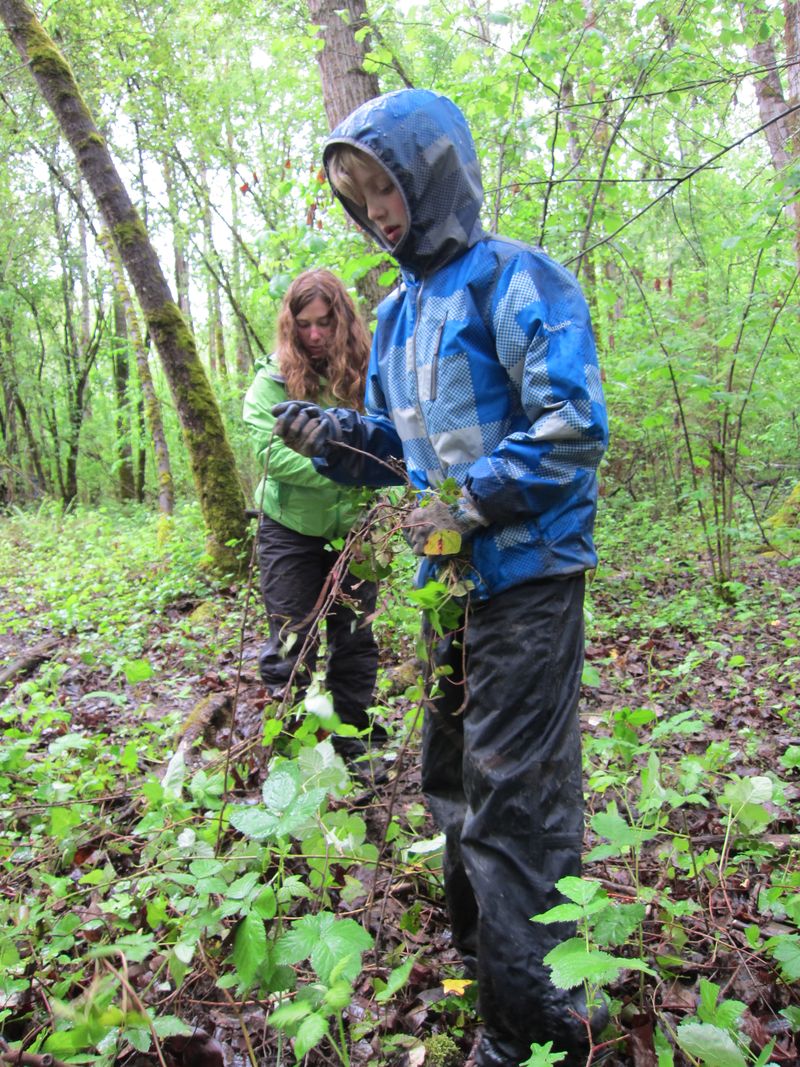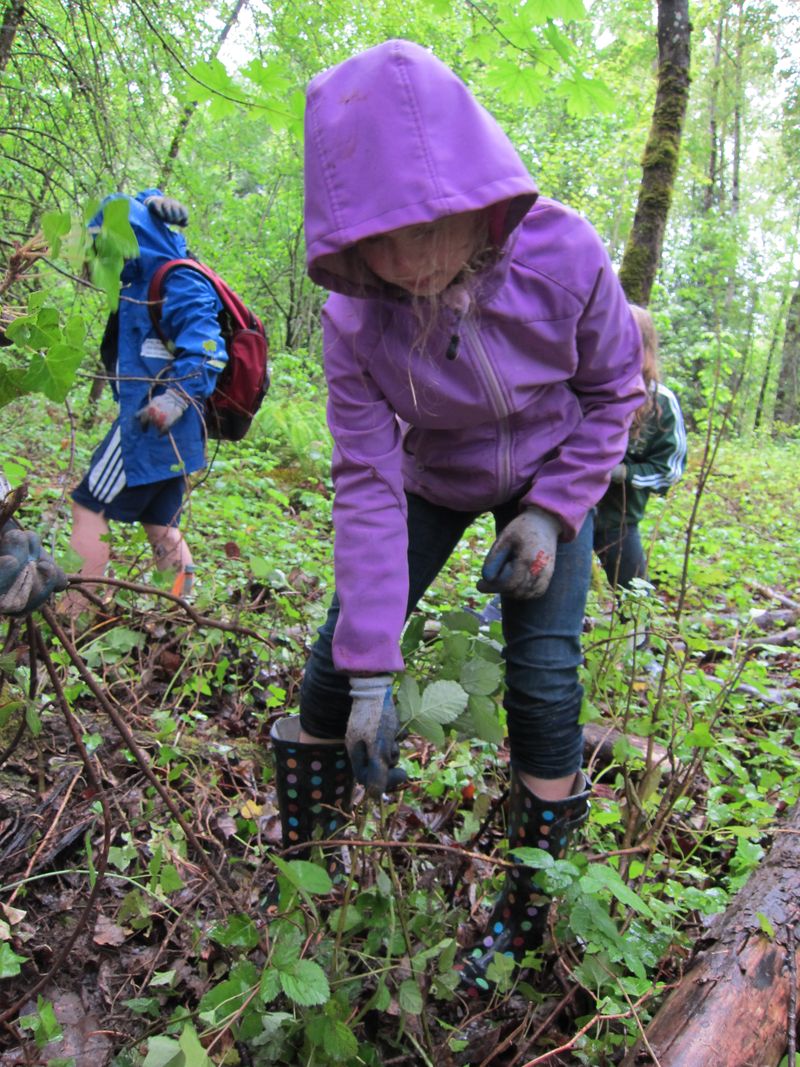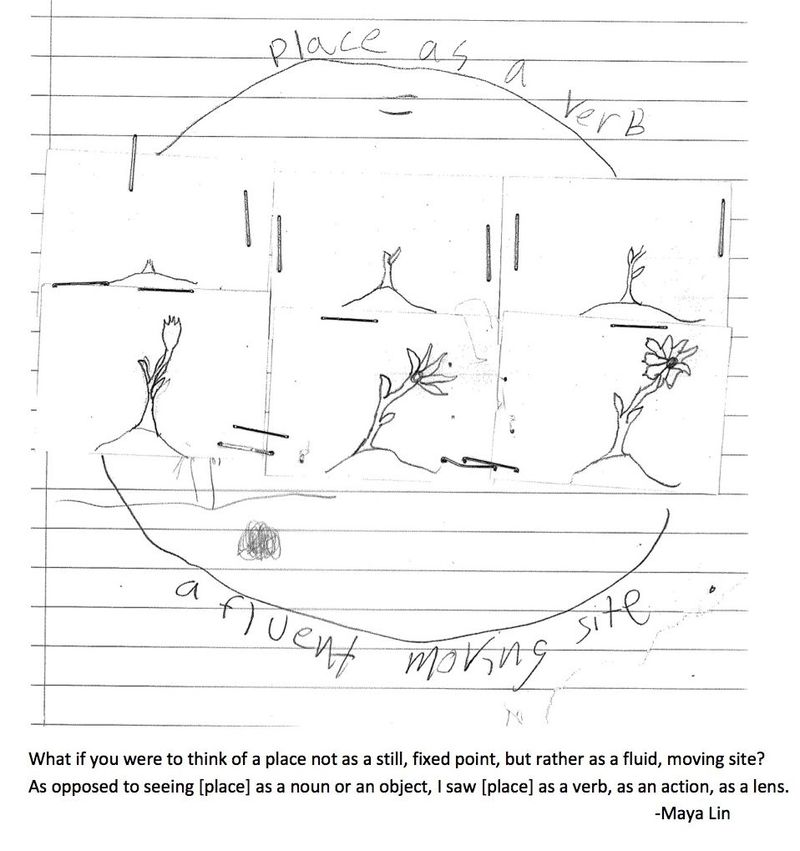Oaks Bottom Wildlife Refuge
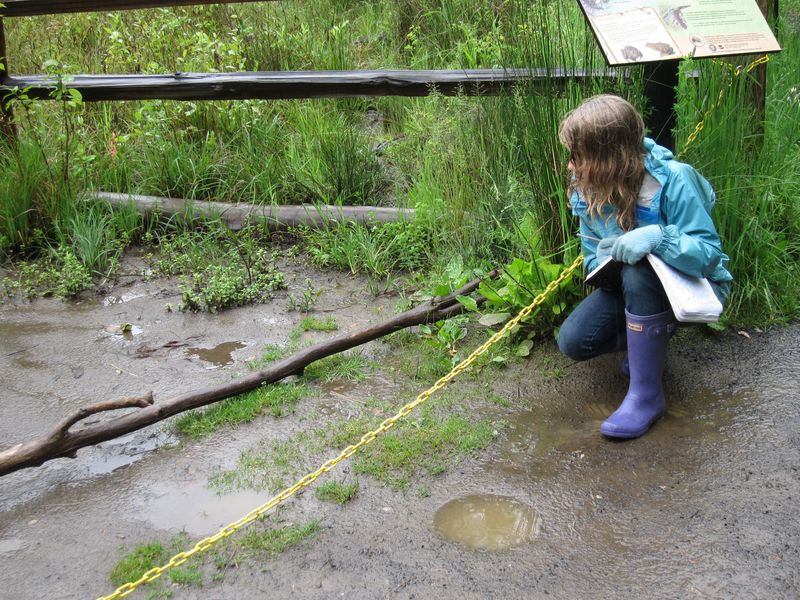
Opal 4 has had the amazing opportunity to get to know the Oaks Bottom Wildlife Refuge this spring with Marci Krass, an educator from Willamette Riverkeeper. We have visited the site three times, April 11, May 1 and May 22, with some big questions in mind:
How will the students’ relationship to this place develop?
Will doing hands-on work in habitat restoration and water quality monitoring help connect students to the site and give them a sense of giving back to the refuge?
How will discovering the story of the Oaks Bottom site connect to our study of Oregon history deepen our understanding of place-based change where we live?
Experiences in sensory awareness, including the "20-second Nature Break," a 20-second silent observation and then 60 seconds of writing time, highlight each of our visits to a new, natural place.
Rain scorches everything it touches, and nature catches it when it falls:
A bucket – a pond lays beneath as the rain fills up its hole.
The puddle cries for more.
Geese call a warning: people are here!
Still looking for their breakfast
A lost tissue.
The sun hidden behind the clouds of sadness, crying as a river.
I turn my head, my wet hair slaps my cheek.
Brrr.
Summer is lost.
-AW
I hear rain drops patting my hood and the dull white sky above me promises more.
Around me is grasses and a small pond.
Under my feet is a worn log with no bark left.
I splash in a puddle and leave.
There will be more time later.
-BM
rain falling
wind blowing
sound of plain people walking by
birds chirping
rocks getting kicked
geese passing by
trees swaying back and forth
-ME
Marci led us through how to do a macroinvertibrate study to determine the quality of the water in the Tadpole Pond and in the wetlands. Opal 4 set off to find indicator species.
Pulling Ivy has been part of each of our trips, giving back to the Wildlife Refuge by doing our part to restore its habitat.
When we got back to school, we spent some time thinking about Oaks Bottom in the contect of this quote from Maya Lin.
“Change is always happening.”
Shrinking
Different
Mud
Water
Habitats
Gone
Moving
Changing
Every day
Never to stop
Change is always happening. It is true, change is always happening. It is happening right now and it will never stop. When you take a footstep outside, you are making a small difference. Don’t try to prevent these small changes you or nature are making, but try to prevent the ones that ruin our parks. I’m not saying to stop nature, like if nature is causing erosion, try to just make it safe. If you are causing problems to nature, try to stop yourself. These are parks, they are nature. Do not hurt them.
-KB
A big THANK YOU to Marci, Willamette Riverkeeper, Oaks Bottom Wildlife Refuge, Tri-Met, and to all of the parent chaperones who made all of our trips and experiences possible!


